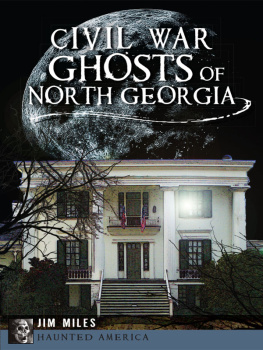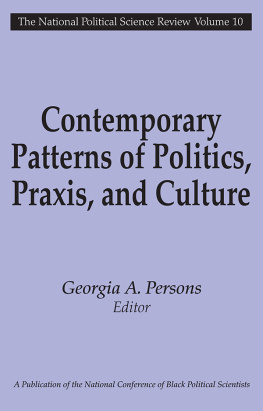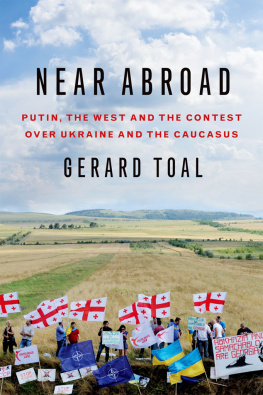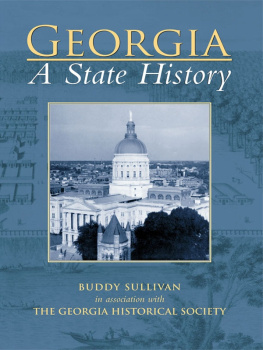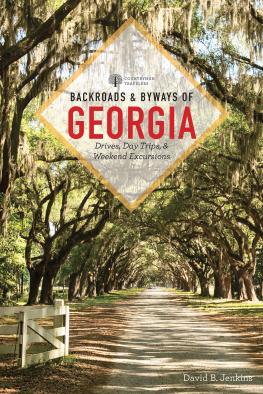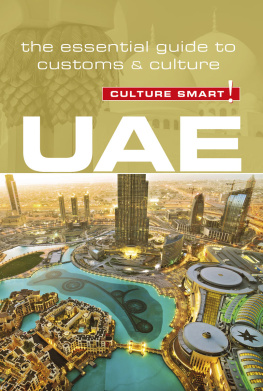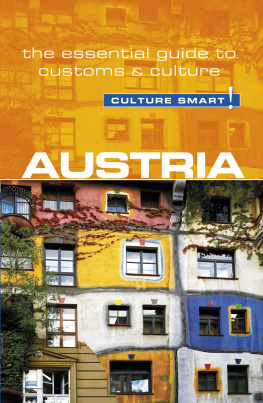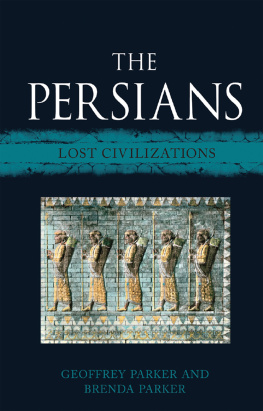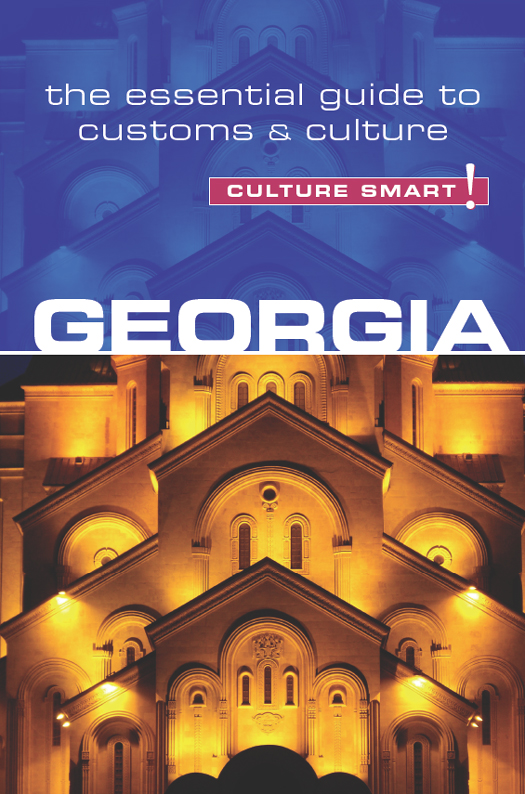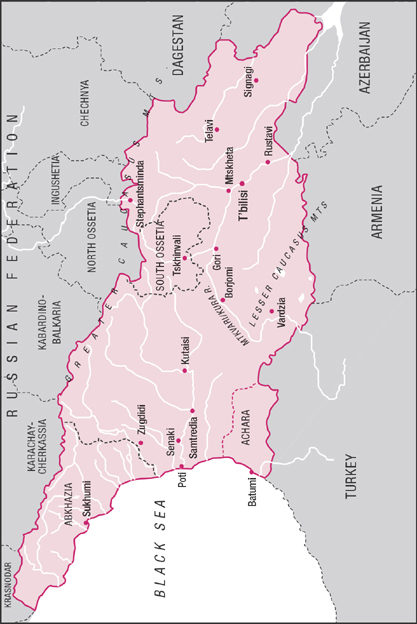eISBN: 978-1-85733-658-0
British Library Cataloguing in Publication Data
First published in Great Britain
by Kuperard, an imprint of Bravo Ltd
59 Hutton Grove, London N12 8DS
Tel: +44 (0) 20 8446 2440 Fax: +44 (0) 20 8446 2441
www.culturesmart.co.uk
Inquiries:
Series Editor Geoffrey Chesler
Design Bobby Birchall
Cover image: Floodlit faade of the vast Tsminda Sameba (Holy Trinity) Cathedral in Tbilisi. Dreamstime
The photographs on the following pages are reproduced by permission of the author: .
The painting on The MightyQuill
Reproduced under Creative Commons Attribution-Share Alike 2.0 Generic license: Morten Oddvik from Trondheim, Norway
v3.1
About the Author
NATIA ABRAMIA is a Georgian journalist based in London. Before joining the BBC she worked in Tbilisi as a TV host and reporter covering news and current affairs. She also taught Conflict Reporting at the Georgian Institute of Public Affairs, and worked as an interpreter for high-profile negotiations and top-level meetings. After completing an MA in International Journalism at Cardiff University, Natia went on to produce TV documentaries, including films on the Balkans and Kashmir, an interview with the Dalai Lama, and features on multiculturalism and diversity. Currently she trains journalists in multiplatform production and works as a producer on flagship programs at the BBC World Service.
The Culture Smart! series is continuing to expand.
For further information and latest titles visit
www.culturesmart.co.uk
The publishers would like to thank CultureSmart!Consulting for its help in researching and developing the concept for this series.
CultureSmart!Consulting creates tailor-made seminars and consultancy programs to meet a wide range of corporate, public-sector, and individual needs. Whether delivering courses on multicultural team building in the USA, preparing Chinese engineers for a posting in Europe, training call-center staff in India, or raising the awareness of police forces to the needs of diverse ethnic communities, it provides essential, practical, and powerful skills worldwide to an increasingly international workforce.
For details, visit www.culturesmartconsulting.com
CultureSmart!Consulting and CultureSmart! guides have both contributed to and featured regularly in the weekly travel program Fast Track on BBC World TV.
contents
Map of Georgia
introduction
Georgia lies between Eastern Europe, Central Asia, and the Middle East, on the southeastern shore of the Black Sea. This small Caucasian country is used to playing a significant role in global geopolitics, though its strategic location at the crossroads of different civilizations has been a curse as well as a blessing. Once a battlefield of the Christian and Muslim worlds, today it is caught between its NATO aspirations and its location in Russias backyard.
The Silk Road, the great overland trade route between Europe and China, brought the world to Georgia. Its ancient Christian culture reflects the contributions of Arab, Persian, and Ottoman conquerors. Combined with this is a southern, Mediterranean feel, traces of the old Soviet legacy, and a very pronounced modern Western influence. What awaits the visitor is a unique culture dating back thousands of years. As well as this rich heritage, Georgia offers wonderful food and wines, unforgettable scenery, authentic folk music and dances, an attractive business climate, and an educated and hospitable people for whom indulging a guest is more a religion than a duty.
Culture Smart! Georgia sets out to provide insights and practical tips for tourists and businesspeople alike. It will guide you through the complex realities of the country, explaining what motivates people, how they live and feeland how to relate to them.
Writing this book about my homeland has been an eye-opening experience. I discovered that some facts about Georgias past and present were just perceptions or desires. More than ever, though, I have come to appreciate how special Georgians are. Cousins, friends, former colleagues and neighbors, just acquaintances, or people I had never met, wrote to give me advice, provide interesting quotes, or made phone calls to check information for me. Some have contributed to this bookyou will see their names inside. There are also many others who are not mentioned and who have helped with the usual Georgian kindness and natural warmth. It is impossible to give all their names. I can only thank themMadloba.
Visitors may find Georgians impulsive, macho, hotheaded, short-termist, obstinate, and poor timekeepersbut they are also warm, proud, generous, expressive, loyal, clever, flexible, and traditional yet stylish. My overseas respondents who have traveled to Georgia have helped me to understand how foreigners see the country. I have interviewed dozens of Westerners who have visited Tbilisi and the regions as tourists or for business. Their input has been invaluable. All of them have brought their views and their stories to the book. Most of them were unanimous about one thing: Georgia is a place to visit and Georgians are people to be friends with; if you touch their hearts, they will charm you back.
Key Facts
| Official Name | Georgia | In Georgian, Sakartvelo (Land of Georgians) |
| Capital | Tbilisi | Population 1.1 million (2010 Census) |
| Major Cities | Kutaisi, Batumi, Poti, Zugdidi, Gori, Telavi | Sokhumi, Gagra, and Ckhinvali are currently in conflict zones. |
| Area | 26,911 square miles (69,700 sq. km) | Approximately 20% of its total territory is not under Georgian government control. |
| Borders | To the south, Turkey, Armenia, and Azerbaijan. To the north, Russia and the federal subject republics of Karachay-Cherkessia, Kabardino-Balkaria, North Ossetia, Ingushetia, Chechnya, and Dagestan |
| Climate | Generally moderate; mild on the Black Sea coast with cold winters in the mountains. | January is the coldest month, July the hottest, and May the wettest. |
| Currency | 1 Georgian Lari (GEL) = 100 tetri |
| Population | 4.6 million |
| Ethnic Makeup | Georgian 83.8%, Azeri 6.5%, Armenian 5.7%, Russian 1.5%, other 2.5%.(2011 est.) |
| Language | Georgian 71% (official), Russian 9%, Armenian 7%, Azeri 6%, other 7% | Abkhaz and Ossetian are official languages in the Autonomous Republic of Abkhazia and South Ossetia. |
| Religion | Orthodox Christian 83.9%, Muslim 9.9%, Armenian Apostolic 3.9%, Catholic 0.8%; other 0.8%; none 0.7% |
| Government | Multiparty democracy. Unicameral parliament of 235 seats; members serve 4-year terms. |



